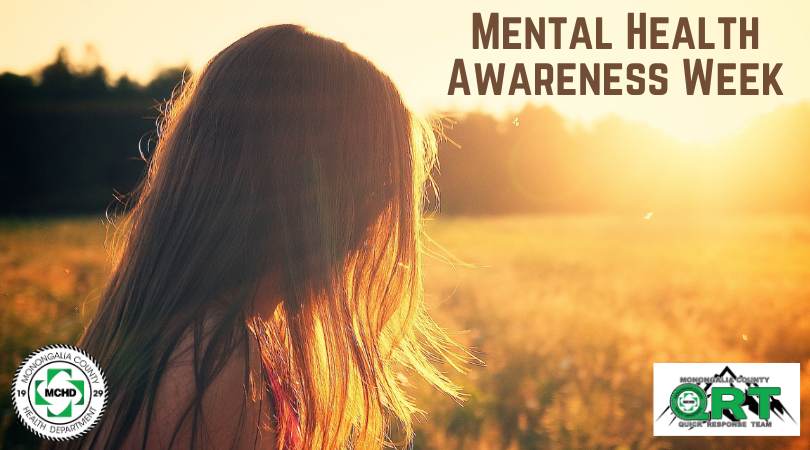Mental health is still health, says MCHD's social worker Mark Liptrap

Oct. 8, 2020
By Matt Cimino
“Know that you are not alone, and even the most knowledgeable and educated people right now are struggling to adjust to everything that’s going on,” said Mark Liptrap in an interview on mental health during the COVID-19 pandemic.
Liptrap is a social worker and substance abuse specialist for Monongalia County Health Department. His services are available for individuals with substance use issues who qualify, via a recent grant to the Monongalia County Quick Response Team (QRT).
Funded through a grant obtained by MCHD, the Monongalia County QRT is coordinated effort between MCHD, law enforcement, first responders, MECCA 911, peer recovery coaches (PRCs) from WV Sober Living and others to connect individuals who overdose to treatment.
But these can be difficult times for just about everyone.
“We all go through some anxiety or depression when we deal with the typical unknowns of life,” Liptrap said.
His words ring especially true during Mental Illness Awareness Week, observed from Oct. 4-10. Promoted by Mental Health America, this week emphasizes the importance of seeking treatment and supporting others.
COVID-19’s effect on mental health has scientists concerned, though the impact has yet to be fully realized.
Liptrap agrees that maintaining good mental health has become even more important due to COVID-19. These are times where we are not as connected and are socializing less, he said. “People are struggling with just about every area.”
According to the Centers for Disease Control and Prevention, pandemics can cause excessive stress and anxiety that change how people function in daily life. If left unchecked, depression can set in. Increases in tobacco, alcohol and other substance usage has also been documented. The CDC offers tips for anyone dealing with stress or mental health issues, including related to the pandemic.
Reaching out for help may be a challenge for some. The CDC identifies stigma as a significant negative impact on mental health. The organization suggests community members and health officials always focus on open communication and treatment advice.
“There may always be an element of stigma associated with mental health, and I think it comes from gender roles. The variety of differences in everyone make us more or less willing to seek treatment,” Liptrap said.
One subset of the population Liptrap believes may be suffering more is those struggling with substance use disorders. Many recovery programs either shut down or transitioned to online services.
“Camaraderie and social interaction are very important… and not having that connection now is a big struggle,” he explained.
As mask-requirements and social distancing orders remain in many states, mental health is being monitored by social workers and psychologists alike.
Liptrap closed by saying that, “We need to try and focus on anti-stigma campaigns. We’ve done a good job these past few decades, however we do seem to live in a society where it’s not as accepted as medical conditions. Mental health is still health, and it does impact our well-being.”
Call or email Mark Liptrap about appointments at 304-598-5160 or Mark.A.Liptrap@wv.gov.
Matt Cimino is a public information office intern at Monongalia County Health Department.